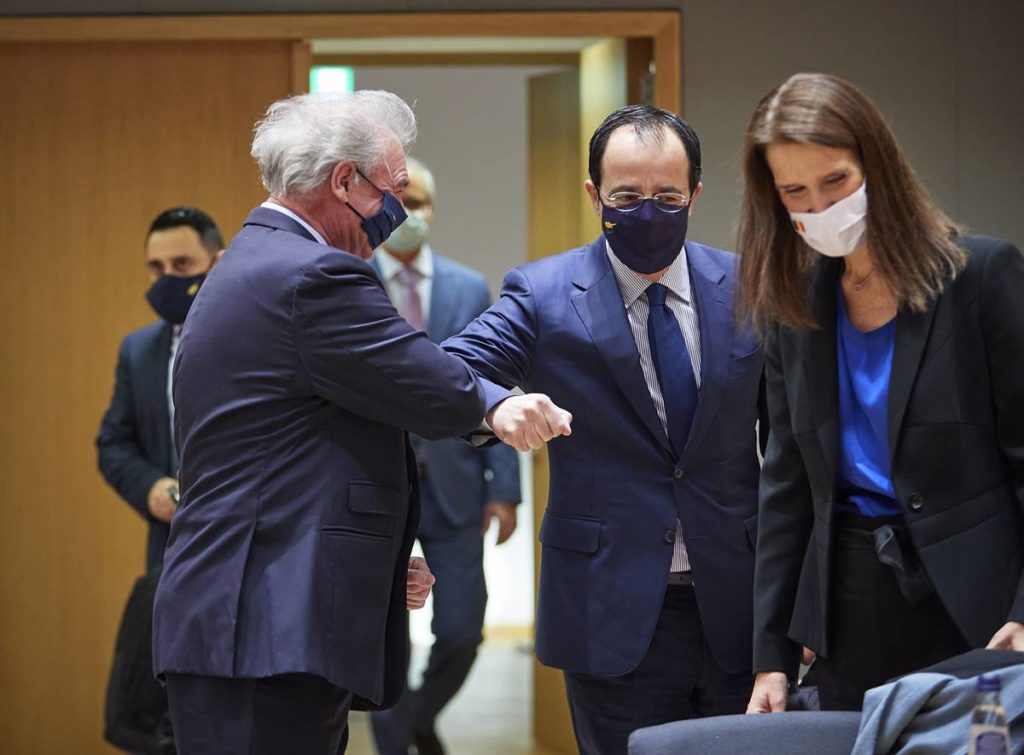The Foreign Affairs Council adopted yesterday a global human rights sanctions regime ahead of the International Day of Human Rights on Thursday (10 December), the day in 1948 when the United Nations General Assembly adopted the Universal Declaration of Human rights.
High Representative Josep Borrell was happy that the Council could meet in person during the pandemic and welcomed the new sanctions regime as a landmark agreement. “We have delivered on a promise given a year ago,” he said.
In addition, the Council took stock of the latest developments in countries where sanctions are already in place or might be imposed in the future, such as Belarus, Hong Kong and Turkey. The post-election situation in Georgia, the legislative elections in Venezuela, the humanitarian situation in Ethiopia and the governance crisis in Lebanon were also discussed.
The Council also exchanged views on the transatlantic relationship with the US and how to engage with the Biden administration taking office on 20 January 2021 based on the concept of strategic autonomy. “It’s not about protectionism but about choosing our dependencies instead of having them imposed on us,” Borrell underlined and defined the concept as lack of dependency on third countries.
Special statements were issued on Lebanon, Venezuela and EU-US relations.
For the first time, the EU is equipping itself with a sanctions framework that will allow it to target individuals, entities and bodies – including state and non-state actors – responsible for, involved in or associated with serious human rights violations and abuses worldwide, no matter where they occurred.
Such restrictive measures will provide for a travel ban applying to individuals, and the freezing of funds applying to both individuals and entities. In addition, persons and entities in the EU will be forbidden from making funds available to those listed, either directly or indirectly.
The framework for targeted restrictive measures applies to acts such as genocide, crimes against humanity and other serious human rights violations or abuses, such as torture, slavery, extrajudicial killings, arbitrary arrests or detentions.
Other human rights violations or abuses can also fall under the scope of the sanctions regime where those violations or abuses are widespread, systematic or are otherwise of serious concern as regards the objectives of the common foreign and security policy set out in the Treaty (Article 21 TEU).
Asked if the new sanction regime has already been activated, Borrell replied that it has not happened yet and would have to be triggered by a proposal from a member state. Borrell usually describes his role as coordinating EU’s foreign policy and acting on the request of the Council and the member states but apparently, he is authorized to propose sanctions.
That said, Borrell believes more in diplomacy and outreach. While sending a signal with the new sanctions regime about the importance of human rights in EU’s foreign policy, sanctions are his last resort.
Can the new sanctions regime be applied against the judiciary in a third country, which allows show trials, torture and death sentences on fabricated charges, as happened in Iran in the case with the Swedish-Iranian researcher Ahmadreza Djalali? Judging by the reply from Nabila Massrali, EU Spokesperson for Foreign Affairs and Security, it cannot be excluded.
“It is for the High Representative and/or member states to submit listing proposals to Council, and for the Council to decide on those listings by unanimity. This process, including who might or might not be considered for listings, is confidential,” she replied.
The Belgian Minister of Foreign Affairs, Sophie Wilmès, welcomed the new sanctions regime as a defence of the European values. However, she regretted that the decisions will have to be taken unanimously and not by qualified majority. “The Union is mature enough to move forward in this direction. It is also a way of making our voice heard better in the world,” she said.
At the press conference on Monday (7 December), Borrell himself deplored that the previous packages of sanctions against Belarus had been delayed and hoped that the new package being currently finalised will be adopted soon.
M. Apelblat
The Brussels Times

